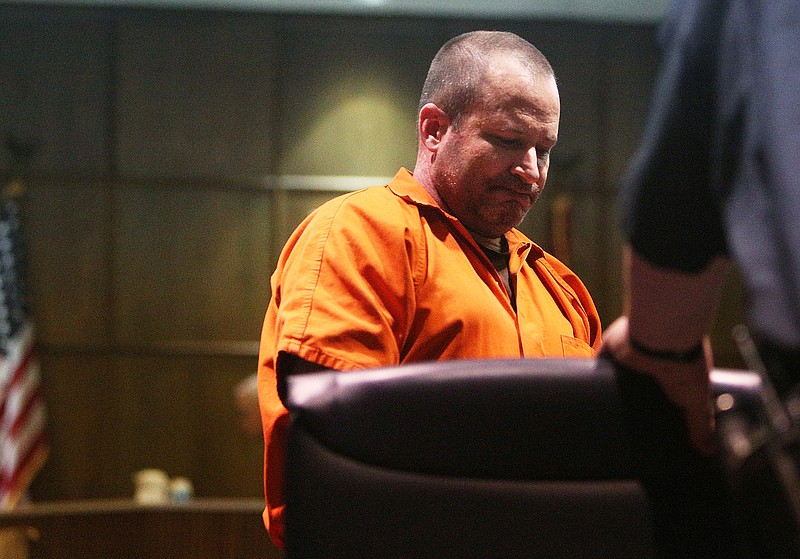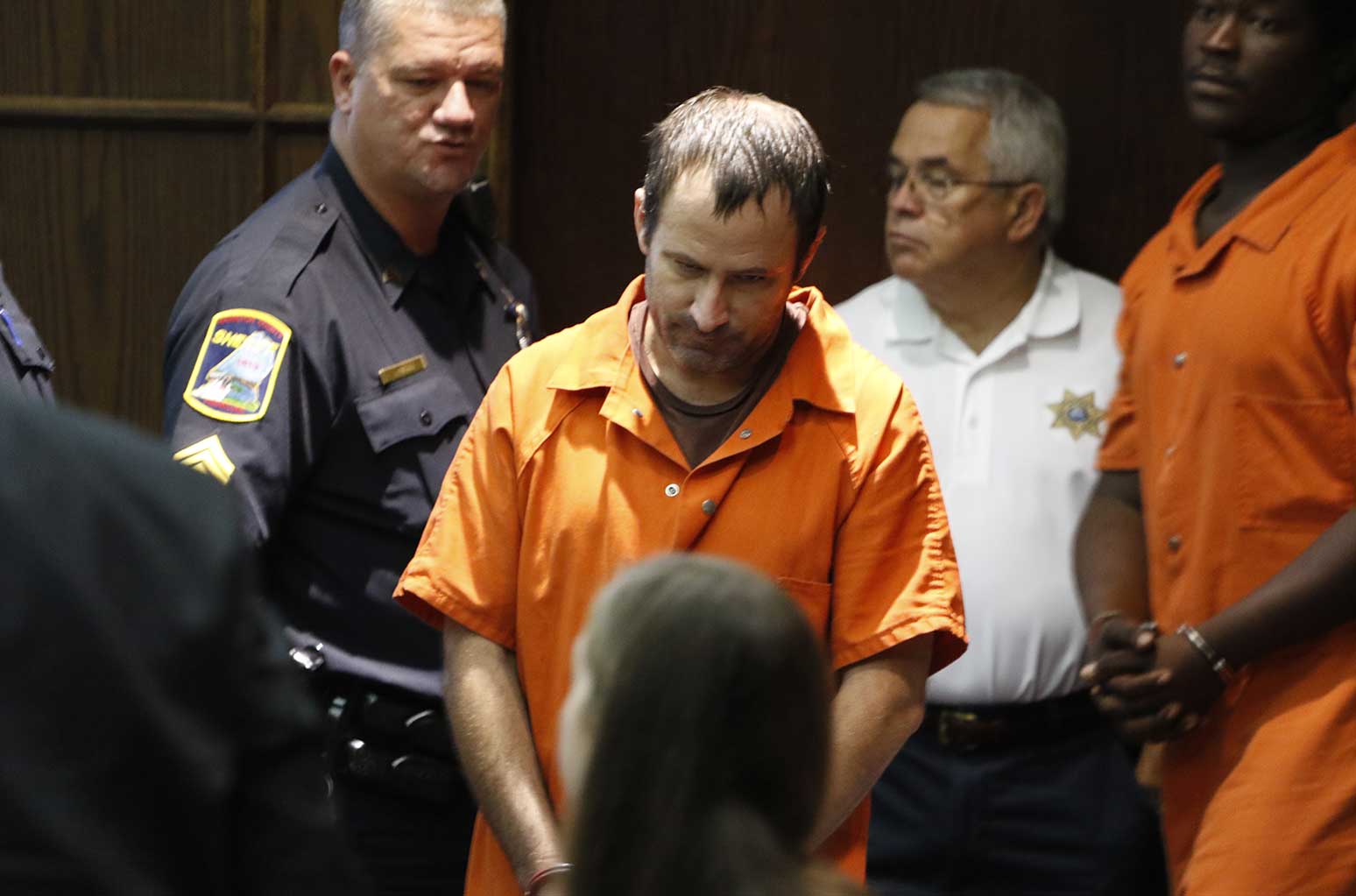Attorneys for the Kentucky trucker sentenced to 55 years in prison for an Interstate 75 crash that killed six say he should receive a new trial because the state concealed crucial evidence beforehand.
In particular, Ben Brewer's attorneys want more information on a chemical called naphthalene that the Tennessee Bureau of Investigation added to Brewer's blood sample after the 42-year-old crashed into slowed traffic on I-75 on June 25, 2015. Naphthalene is used in mothballs and is considered a good solvent for making chemical solutions.
Public defenders say they never learned about this "contamination" until a TBI agent on the witness stand mentioned it during Brewer's trial in Hamilton County Criminal Court this January. Because of that, along with a second blood test that showed different levels of illegal drugs in Brewer's system, his defenders say he is entitled to a new trial or an acquittal.
They'll get their chance to argue further on Sept. 10 before Criminal Court Judge Don Poole. But on that date, their arguments will focus on a related, though different, legal issue: Whether prosecutors have to respond to a defense subpoena asking for any possible communications the state had with the TBI about the substance, as well as information about how many other blood samples on which the TBI used the substance.
Hamilton County District Attorney General Neal Pinkston is opposed to the defense attorneys' subpoena, saying that prosecutors turned over everything to which Brewer is entitled in a criminal case. In a motion filed earlier this month, Pinkston said emails are considered protected "work product" and irrelevant to Brewer's case.
"The state avers the defendant has received all relevant material and potential [helpful] evidence within the state's possession," Pinkston wrote in his motion. "Since none of the requested items were obtained from or belong to the defendant, in order to receive anything other than the TBI report, the defendant must prove these requested items are relevant to his defense."
TBI spokeswoman Leslie Earhart added that forensic scientists use a multi-step "chemical extraction" process to isolate drugs in a blood sample, and that its scientific instruments often pick up on the "chemicals and/or solvents used." But it "had no effect on TBI's result and could not in any way effect [sic] results produced by another lab's analysis," she wrote in an email.
Defenders say anything related to Brewer's blood is relevant because it touches on a core question: Was he intoxicated at the time of the crash? Prosecutors say he was and relied on a TBI report showing methamphetamine and amphetamine in Brewer's system, reports showing nothing wrong with his vehicle and on-scene officers who saw no brake marks.
A jury ultimately convicted Brewer of six counts of vehicular homicide, four counts of reckless aggravated assault, and one count each of driving under the influence and speeding, and Poole sentenced him to 55 years in prison in March.
But defenders say prosecutors didn't prove intoxication at the time of the crash itself. Defenders also said prosecutors never told them about a second blood test, done at a federal lab, that showed lower amounts of methamphetamine in Brewer's blood.
Prosecutors countered that information was contained in a footnote of a federal report on the crash and argued that meth in someone's system is illegal, regardless of the amount. After a full hearing pretrial in 2017, Judge Poole said prosecutors didn't "willfully" conceal the evidence and both parties agreed not to discuss the second test at Brewer's trial.
Contact staff writer Zack Peterson at zpeterson@timesfreepress.com or 423-757-6347. Follow him on Twitter @zackpeterson918.

